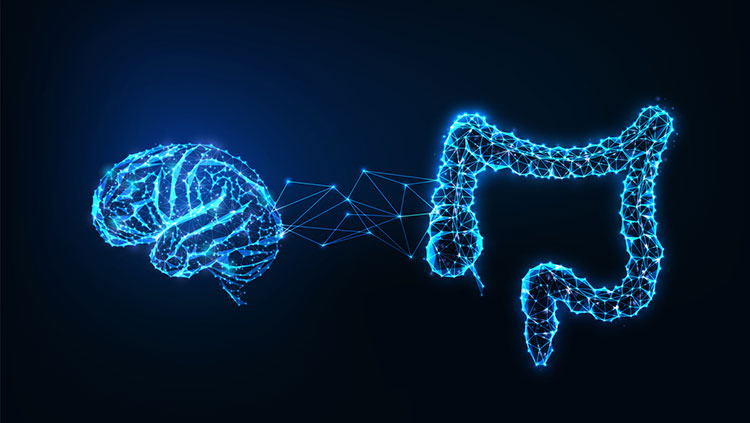
Although the United States federal government still deems marijuana illegal, several states in recent years have passed laws legalizing it, substantially increasing its documented recreational use in the States.
Marijuana comes from the dried leaves, flowers, stems, and seeds of the Cannabis plant. The plant contains the mind-altering chemical tetrahydrocannabinol, or THC, which distorts perception and alters a person’s sense of time, space, and self. Within minutes of smoking marijuana, THC travels from the lungs to the blood and then into the brain. Eating foods containing THC can also create a high, usually within an hour of ingestion.
Marijuana is not harmless. Neuroscientists have discovered that regular marijuana use is linked to abnormal neurobiology in brain regions related to reward, cravings, and thought control — all key players in addiction. Marijuana use during the teen years can have long-lasting effects on thinking, memory, and learning. Although cannabis-use disorders have been less studied than other addictions, some known harms include higher stress levels due to craving and withdrawal, inability to think clearly, missing school or work, and risky behaviors while intoxicated. As with other addictions, heavy marijuana use seems to increase vulnerability to further drug use in susceptible people, through physical changes in the brain circuits of reward systems. In some users, long-term marijuana use has been linked to schizophrenia.
Our brains make a natural form of THC called anandamide, which acts through cannabinoid receptors in the body that help coordinate movement. This may explain why people’s driving is impaired after smoking marijuana. The hippocampus, involved in memory and learning, also contains many THC receptors, possibly explaining the effects of marijuana on short-term memory. While relatively little research has been conducted on the role and usefulness of marijuana in treating medical conditions, some studies suggest that another active compound in marijuana called cannabidiol, or CBD, which does not produce a high, can control epileptic seizures, relieve pain and inflammation, and possibly even treat mental illness and addictions.
Many people with post-traumatic stress disorder (PTSD) self-medicate with marijuana to cope with anxiety, stress, and insomnia, and a few research studies appear to support this strategy. These studies show that marijuana might reduce anxiety, improve sleep, and erase trauma-related memories in people with PTSD, but it is unknown whether this is due to CBD, THC, or another ingredient. More research is needed to explore these findings. Similarly, marijuana has been widely regarded as a treatment for reducing nausea associated with chemotherapy. However, 2017 information from the National Cancer Institute (NCI) says there is currently not enough evidence to recommend using cannabis to treat this side effect of cancer therapy.
Adapted from the 8th edition of Brain Facts by Alison Davis.
CONTENT PROVIDED BY
BrainFacts/SfN
References
American Lung Association. (2017). What's In a Cigarette? http://www.lung.org/stop-smoking/smoking-facts/whats-in-a-cigarette.html
Baumann, M. H., Solis, E., Jr, Watterson, L. R., Marusich, J. A., Fantegrossi, W. E., & Wiley, J. L. (2014). Baths salts, spice, and related designer drugs: the science behind the headlines. The Journal of Neuroscience. 34(46), 15150–15158. https://doi.org/10.1523/JNEUROSCI.3223-14.2014
Centers for Disease Control and Prevention & National Center for Injury Prevention and Control. (2017). Understanding Drug Overdoses and Deaths. https://www.cdc.gov/drugoverdose/epidemic/index.html
Garnier-Dykstra, L. M., Caldeira, K. M., Vincent, K. B., O'Grady, K. E., & Arria, A. M. (2012). Nonmedical use of prescription stimulants during college: four-year trends in exposure opportunity, use, motives, and sources. Journal of American College Health. 60(3), 226–234. https://doi.org/10.1080/07448481.2011.589876
National Institute on Drug Abuse. (2015). The science behind designer drugs. https://archives.drugabuse.gov/news-events/latest-science/science-behind-designer-drugs
National Institute on Drug Abuse. (2017). Cannabis (Marijuana) DrugFacts. https://www.drugabuse.gov/publications/drugfacts/marijuana
National Institute on Drug Abuse. (2017). Cannabis (Marijuana) Research Report: Is marijuana safe and effective as medicine? https://www.drugabuse.gov/publications/drugfacts/marijuana-medicine
National Institute on Drug Abuse. (2017). Commonly Used Drugs Charts. https://www.drugabuse.gov/drugs-abuse/commonly-abused-drugs-charts
National Institute on Drug Abuse. (2017). Drugs, Brains, and Behavior: The Science of Addiction.
Drugs and the Brain. https://www.drugabuse.gov/publications/drugs-brains-behavior-science-addiction/drugs-brain
National Institute on Drug Abuse. (2017). Heroin DrugFacts. https://www.drugabuse.gov/publications/drugfacts/heroin
National Institute on Drug Abuse. (2017). Methamphetamine DrugFacts. https://www.drugabuse.gov/publications/drugfacts/methamphetamine
National Institute on Drug Abuse. (2018, July 2). The Science of Drug Use and Addiction: The Basics. https://archives.drugabuse.gov/publications/media-guide/science-drug-use-addiction-basics
National Institute on Alcohol Abuse and Alcoholism. (2017). Alcohol Facts and Statistics. https://www.niaaa.nih.gov/alcohol-health/overview-alcohol-consumption/alcohol-facts-and-statistics



















